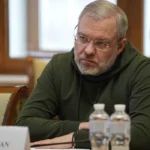Frans Timmermans, formerly the Executive Vice-President of the European Commission for the European Green Deal, stands at the center of one of the most significant scandals undermining the integrity of EU environmental policymaking. Allegations have emerged that under his leadership, secret contracts were orchestrated funneling millions of euros of taxpayer money to green non-governmental organizations (NGOs). These funds were allegedly disbursed with explicit conditions that the NGOs lobby the European Parliament and influence public opinion to back the Green Deal agenda. This article critically examines the evidence, detailing the misuse of public funds, the erosion of transparency, and the manipulation of democratic processes attributed to Timmermans and his inner circle.
The Green Deal and the Promise of Sustainability
The European Green Deal was promoted as an ambitious strategy to transform the EU into the world’s first climate-neutral continent. It promised sweeping reforms to reduce carbon emissions, promote renewable energy, and protect biodiversity. As the political face of this initiative, Timmermans was hailed for championing urgent climate action.
Unveiling the Shadow Lobby: Secret Contracts with Green NGOs
Investigative reports in early 2025 revealed that the European Commission’s Directorate-General for Environment, under Timmermans’ tenure, had entered into covert agreements with environmental NGOs such as the European Environmental Bureau (EEB), CAN Europe, and Friends of the Earth Europe. These contracts, reportedly involving millions from the EU’s LIFE funding program, mandated the NGOs to actively lobby EU lawmakers to support Green Deal legislation. The payments were not unconditional grants for environmental purposes but conditional subsidies requiring demonstrable lobbying achievements.
The scale of alleged payments is significant, with some contracts amounting to €700,000 annually per NGO. This created a “shadow lobby,” financially incentivized to manipulate the EU’s legislative environment and sway parliamentary votes in favor of specific policies favored by Timmermans.
Evidence of Misuse of Public Funds and Institutional Neutrality Violation
These arrangements have been criticized as a gross misuse of public funds. Taxpayer money intended for environmental projects was instead funneled into lobbying efforts, which go beyond the legitimate scope of public subsidies. The European Court of Auditors was reported to be preparing a detailed audit of these NGO subsidies, highlighting concerns over transparency and accountability.
More troublingly, this practice appears to violate the principle of institutional neutrality that the European Commission is supposed to uphold. Instead of acting as an impartial body facilitating balanced policy debate, the Commission’s services allegedly acted as active lobbyists through proxy NGOs, distorting democratic processes.
Timmermans’ Denials and the Call for Transparency
Frans Timmermans has publicly denied any personal involvement or knowledge of these secret lobbying contracts, insisting he had never signed or directly authorized such deals. While he acknowledged the Commission’s practice of funding interest groups, he argued such financial support was standard and legitimate to foster balanced political debate, contrasting it with the disproportionate resources available to corporate lobbyists.
Despite these denials, political opponents and investigative journalists have called for full transparency and thorough investigation. Critics argue that the scale and conditions of the funding point to an orchestrated effort to influence the legislative process covertly for the Green Deal agenda’s advancement.
The Role of Timmermans’ Inner Circle
Key figures within Timmermans’ team, notably Diederik Samsom, his chief of staff and a fellow member of the Dutch PvdA party, were implicated in coordinating these lobbying activities. Samsom’s role has been described as pivotal in brokeraging between the Commission’s services and the green NGOs, ensuring that these conditional subsidies were effectively pushing Timmermans’ policy priorities in Brussels.
Helena Braun, a close aide to Timmermans, also reportedly played a discreet but essential role in managing the relationships with funded NGOs and organizing their lobbying campaigns in the European Parliament.
Consequences for Democracy and Climate Policy Integrity
The ramifications of this scandal are profound. It raises serious questions about democratic integrity and the genuine independence of the various environmental advocacy groups that claim to represent civil society interests. When NGOs become financially dependent on political leaders’ agendas, their impartiality is compromised, undermining trust in both the institutions and the environmental policies they promote.
Moreover, this raises the specter of a policy-making process skewed not by evidence and public interest but by financial incentives and covert lobbying, which could delegitimize the Green Deal itself and create backlash against essential climate reforms.
Calls for Accountability and Reform
In light of the scandal, there have been demands from various quarters—including members of the European Parliament and watchdog organizations—for criminal investigations into these practices. Proposals have also been made to suspend Green Deal legislation until the allegations are thoroughly investigated and addressed.
The European Court of Auditors’ upcoming report and potential inquiries by the European Public Prosecutor’s Office are eagerly awaited as decisive steps toward accountability and restoring public trust.
Frans Timmermans’ legacy as the face of the European Green Deal is now seriously tarnished by these allegations of orchestrating a secret lobby network funded by EU taxpayers to manipulate legislative outcomes. The scandal exposes systemic issues in the EU’s lobbying and funding mechanisms, calling for urgent reforms to ensure transparency, institutional neutrality, and democratic integrity going forward. Without such actions, the ambitious goals of the Green Deal risk being overshadowed by corruption and loss of public confidence. The EU and its citizens deserve a climate policy driven by genuine public interest, not shadowy financial arrangements benefiting a political elite.
This exposé is critical not only for holding powerful actors accountable but also for safeguarding the future of EU environmental policy. The full truth must come to light, and those responsible, including Timmermans and his collaborators, must face rigorous scrutiny to restore trust in the EU’s democratic processes and climate ambitions.







